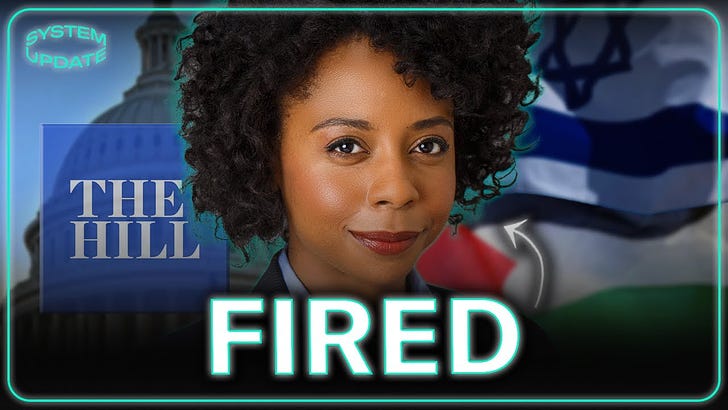The Controversial Firing of Briahna Joy Gray: A Case of Media Censorship or Necessary Action?
Navigating Ideological Boundaries and Editorial Independence in Modern Journalism
In the landscape of media today, the clash between journalistic freedom and corporate control often emerges as a contentious issue. Recently, the firing of Briahna Joy Gray from The Hill has sparked intense debate and raised questions about editorial independence, ideological pressure, and the limits of free speech within media organizations.
Background
Briahna Joy Gray, a prominent leftist commentator and former press secretary for Bernie Sanders' 2020 presidential campaign, joined The Hill's "Rising" in 2021. "Rising," co-hosted by Gray and Robbie Suave, aimed to provide a platform for diverse viewpoints, challenging the narratives of mainstream media. Gray's tenure at The Hill, however, was marked by increasing tensions over her coverage of Israel and other sensitive topics.
The Firing Incident
On June 1, 2024, Gray received an email from The Hill notifying her of her termination, effective immediately. The email, which misspelled her name and provided no specific reasons for her firing, left Gray and her supporters questioning the motivations behind the abrupt dismissal.
Censorship Allegations
Gray has been vocal about the pressures she faced to tone down her coverage of Israel. She claimed that since a significant turnover in staff at The Hill, new editorial mandates sought to restrict coverage of Israel, labeling it as an "Israel block" and limiting the number of segments that could be aired on the topic. This shift reportedly came despite the popularity of Israel-related segments among "Rising" viewers and the significant audience engagement they garnered.
Public Backlash and Support
Following her firing, Gray received an outpouring of support from colleagues, journalists, and her audience. Many cited her principled stance on journalistic integrity and the importance of providing a platform for marginalized perspectives. The incident also prompted broader discussions about media bias, corporate influence, and the chilling effect of censorship on journalistic freedom.
Controversial Interview Clip
Central to the controversy was a brief clip from an interview Gray conducted with the sister of a hostage in Gaza. Critics, including some within The Hill, alleged that Gray had displayed unprofessional conduct during the interview, citing an eye-roll gesture and dismissive comments. Gray, however, defended her actions, attributing the gesture to frustration with editorial decisions rather than disrespect toward the interviewee.
Editorial Control and Internal Strife
Gray's dismissal highlighted deeper issues within The Hill, including allegations of editorial interference and a strained work environment. She pointed to instances where stories critical of Israel were sidelined or framed as personal opinion pieces rather than objective news coverage. This shift in editorial policy reportedly coincided with a broader overhaul of the organization's staff and editorial direction.
Media Landscape and Independence
The incident raises broader questions about the state of media independence and the pressures faced by journalists to conform to corporate or ideological agendas. Gray's case underscores the challenges journalists face in maintaining integrity while navigating corporate structures and editorial directives that may conflict with journalistic ethics.
Conclusion
The firing of Briahna Joy Gray has ignited a fierce debate over media censorship, editorial integrity, and the boundaries of free speech in journalism. As media organizations navigate these challenges, Gray's case serves as a poignant reminder of the critical role journalists play in holding power to account and the importance of preserving editorial independence in the face of corporate pressures.
Implications for Journalism
Moving forward, Gray's case prompts journalists, media professionals, and audiences alike to reflect on the principles of journalistic freedom and the responsibilities of media organizations to uphold transparency and accountability. The fallout from her firing underscores the need for robust protections for journalists and editorial independence to ensure a vibrant and diverse media landscape.
Author's Note
As the fallout from Briahna Joy Gray's firing continues to unfold, the incident serves as a pivotal moment for media ethics and the future of journalistic integrity. It remains to be seen how The Hill and other media outlets will respond to the backlash and whether Gray's case will catalyze broader reforms within the industry.
Blessings on you and your family, and from all the PLUCare staff! Thank you again for subscribing.
PLUCare is a reader-supported publication. To receive new posts and support our work, consider becoming a paid subscriber. And if you are a paid subscriber, thank you!
I’ve made this post free for all. The biggest help you could give me is to share it widely (I mean, if you enjoyed it that is..)





